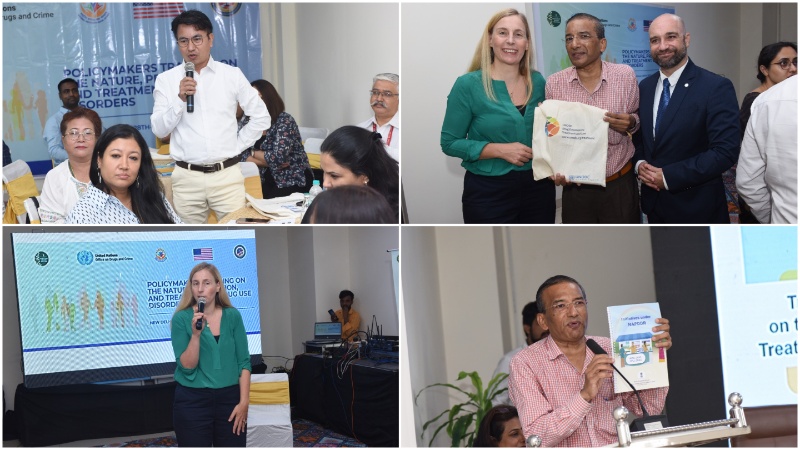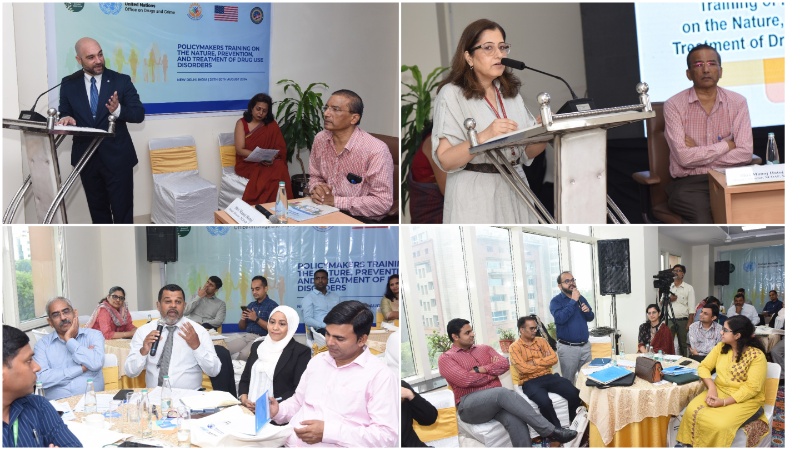India: UNODC builds regional expertise, empowers policymakers to tackle drug use disorders
New Delhi, India/31 August 2024: In the global fight against drug use disorders, the significance of effective policy responses and prevention efforts cannot be overstated. Drug use not only jeopardizes individual health and safety but also strains social and economic systems, making robust and evidence-based policy responses crucial for creating sustainable solutions.
Enhancing policy responses and building regional expertise, UNODC and the National Institute of Social Defence, Government of India—with support of the U.S. Bureau of International Narcotics and Law Enforcement Affairs (INL)--brought together 26 policymakers of India and the Maldives from diverse sectors including health and justice.
This collaborative capacity building initiative underscored the importance of regional knowledge exchange and integrated approaches in tackling the multifaceted issue of drug use prevention. The training provided participants with crucial insights into the nature, prevention and treatment of drug use disorders.
By connecting policymakers across sectors and borders, the training laid the groundwork for a network of experts who can share resources, strategies, and insights. Participants shared ideas for prevention programs tailored to their local contexts, incorporating the advanced psychosocial strategies they learnt.
Anja Busse from UNODC’s Prevention, Treatment and Rehabilitation Section (PTRS), Dr. Anju Dhawan, Chief of India's National Drug Dependence and Treatment Centre (NDDTC) and Manoj Hatoj, Deputy Director, NISD emphasized the need for a united, evidence-based approach to prevent and treat drug use disorders.
Bridging gaps between theory and practice, the training equipped policymakers with the tools needed to address the unique needs of vulnerable populations effectively.

“This was a data-driven training and helped us align our strategies with international conventions using evidence-based approaches,” said a policymaker from the Maldives. “This has been an enriching experience to participate in deliberations with multiple stakeholders on addiction, and its prevention and treatment,” said a participant from India.
Welcoming the initiative, they also called for integrating these approaches into health plans, focusing on early intervention and community-based support systems.
“I request UNODC to conduct more such trainings for policymakers. Once we have hands-on practices and which tools we can use for screenings and data management, it becomes easier for us to develop preventive strategies,” another participant said.
"To be effective, drug use prevention and treatment systems should be considered an integral part of broader health, social care, and community services. This training underscores the power of collaboration and the importance of viewing drug use disorders through a comprehensive lens. Our collective efforts are paving the way for more resilient and responsive policy frameworks," said Marco Teixeira, UNODC Regional Representative for South Asia.
The activity contributed to SDG 3, SDG 16 and SDG 17: https://sdg-tracker.org/
(Supported by the US Bureau of International Narcotics and Law Enforcement Affairs)
